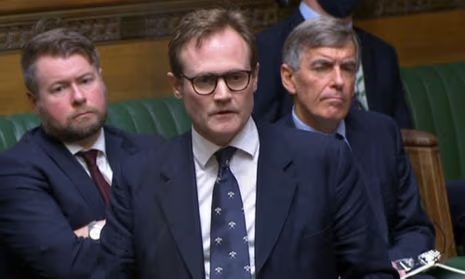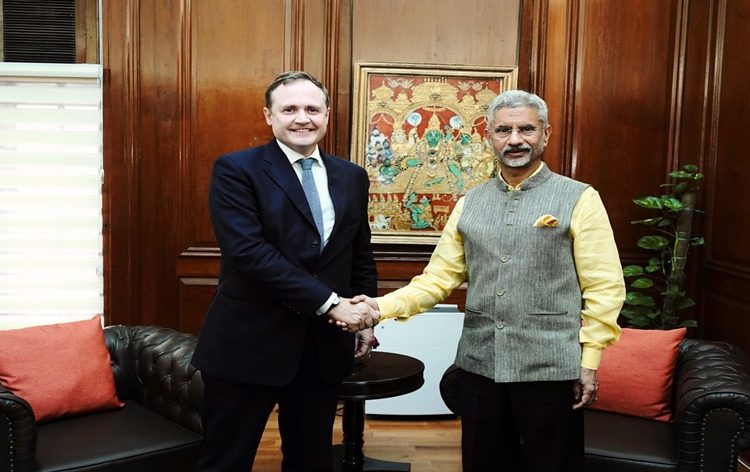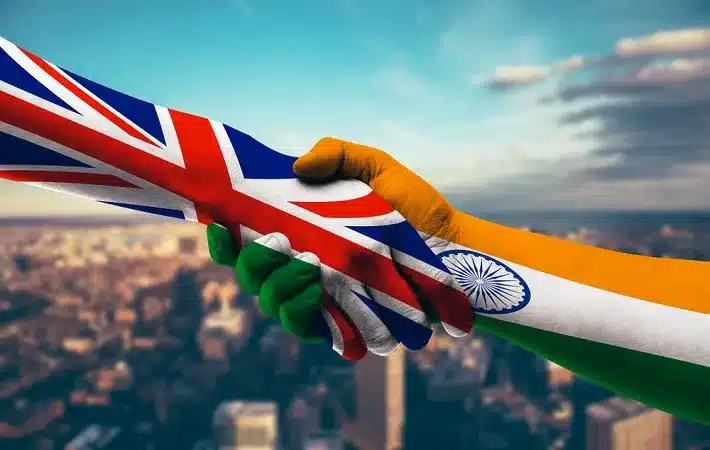The senior minister told PTI in an exclusive interview that the British government is responding to India’s concerns on the activities of pro-Khalistani forces and that any attempts to radicalize individuals in the UK will be met with legal action.

Security for Indians
Around five months after the office was attacked by pro-Khalistani forces, which put the bilateral relations under some strain, British Security Minister Tom Tugendhat said that the United Kingdom is taking the necessary steps to guarantee the security and privacy of the Indian High Commission in London and its workers.
The senior minister told PTI in an exclusive interview that the British government is responding to India’s concerns on the activities of pro-Khalistani forces and that any attempts to radicalize individuals in the UK will be met with legal action.
“Let’s be extremely clear on this. The UK has no issues with Indians at all. Whenever British nationals get radicalized in the UK, this is a British concern. So, the British government would deal with any attempt to radicalize any UK citizen in any direction, he stated.
“For this reason, the Prevent Programme exists, and we are utilizing it to address the challenges of radicalization across various communities,” he stated.
In March, pro-Khalistan individuals stormed the Indian High Commission in London and tore the national flag from a pole in front of the building. India reacted violently.
Tugendhat’s visit to India
Tugendhat traveled to India for three days from August 10 to 12, principally to attend the G20 ministerial summit on anti-corruption in Kolkata. He spoke with National Security Advisor Ajit Doval and External Affairs Minister S. Jaishankar in Delhi.
“We collaborate closely to make sure we’re helping one another. I have been extremely involved in recent days and weeks, collaborating with friends of ours and in particular with staff at the Indian High Commission to ensure that they are secure in London and that anyone threatening them is dealt with by the law, he added.
Tugendhat announced increased financing on Friday for Britain’s ability to combat “pro-Khalistan extremism” totaling 95,000 pounds (about Rs 1 crore).
Ties between India and UK
According to the British Security Minister, there is a considerable gap between “where we are compared to where we could be” in terms of the overall security collaboration between the UK and India.

“I have the tremendous honor of engaging representatives in other nations in an effort to strengthen our ties. And in numerous instances, we may take simple steps to strengthen the bond, he added.
However, the relationship between India and the UK is either already excellent or is not going to improve dramatically.
Advancement in relationship
In addition, the British security minister mentioned how India and the UK are stepping up their collaboration to address the problems of terrorism, extremism, radicalization, and cybercrime.
Speaking of the close relationships that exist between the two nations’ citizens, Tugendhat added that certain individuals take advantage of this connection to carry out criminal acts wherever they can.
He emphasized the collaboration between the two nations in the Indo-Pacific, saying that strong security relations have been a key component of it.
“As you are aware, the Pacific end of the Indo-Pacific has received a lot of attention, therefore Prime Minister (Rishi) Sunak requested me to visit India to speak with your administration. And ensuring that it becomes more balanced is crucial, he added.
It affects our economy’s technologies. It has an impact on our population’s security. Then he said, “And that’s where I’ve been working with folks in your administration to make sure that we’re having that organized discourse and developing those lasting partnerships that make sure that we’re keeping our people secure and guaranteeing their continuous prosperity.
Tugendhat did not directly respond when asked if the two nations in the Roadmap 2030 were determined to take swift and effective action against terrorist organizations that were outlawed internationally.













